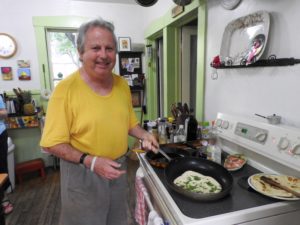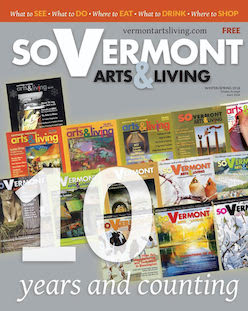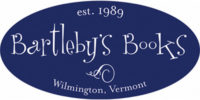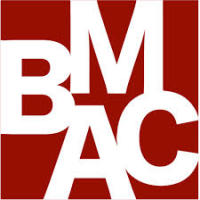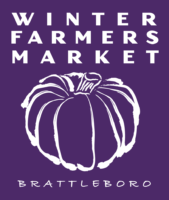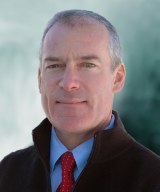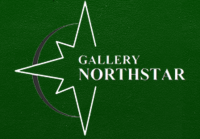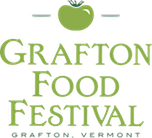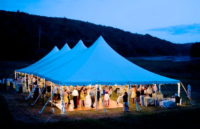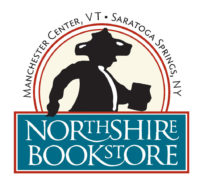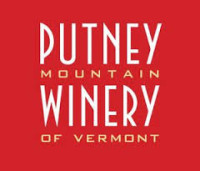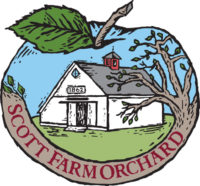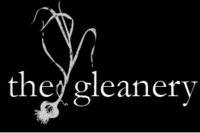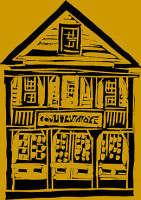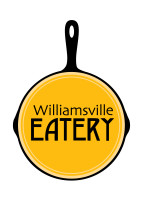By Robert McBride
So here we are, spinning around the sun, globally connected. I wonder whether the stress level is more or less than when our ancestors were worrying about the bison, climate change, an attack from a band of barbarians, and who their next leader might be.
In the early 1960s, at the dinner table, my father would comment on U.S. politics and the economy, “It is the rise and fall of the Roman empire.”
He’d often follow this up with the cryptic statement, “I had a little ball, I threw it against the wall and that was all.” My brothers and I would look at each other and just roll our eyes. Now at 66, older than my father was when he uttered his prophetic words, I feel that little ball in my hand.
Last year, I heard a program on NPR on which a psychologist from Stanford University stated that when we are in our 60s and 70s that these are the happiest years of our lives not because we notice physical ailments, care for loved ones, or visit with death more frequently, but rather because we start to make decisions about what we want to do and how we want to spend our time. I know that I am tracking this. Although I am interested and engaged in a spectrum of stuff, I am learning to respond to requests as Melville’s Bartleby the scrivener so succinctly did: “I prefer not to.”
The sand is running through the hourglass. At 45, when I started the Rockingham Arts and Museum Project (RAMP), there was a lot more sand at the top of my hourglass. At 66, with less above and more below, I want to spend time doing what matters to me: the arts, affordable housing, caregiving, sharing meals with friends, napping, working in the garden, and cleaning out that closet at home so someone else does not have to deal with it—and decidedly minimizing the amount of time that I spend sitting before a screen.
This is not a withdrawal/denial response, but rather a sensible response of a mature adult looking at the present and, with a glance over his shoulder, looking to see who is following in his footsteps to relieve him of and to shoulder the burden of the future.
There is an awful lot of connecting going on these days, and speedy connecting it is. But how much of it involves reflection? Perhaps reflection is a dated, Jane Austen kind of thing, when a letter (including sentences) being sent back and forth over days, weeks, months was considered speedy. I am sure the characters of her time were just as witty, ambitious, and entitled as we, but I like to imagine, using the filter of the past, that they reflected during the time between those letters. For me, the push of the reply-all button often just satisfies a need for a speedy action rather than also thoughtful response.
I founded the Rockingham Arts and Museum Project (RAMP) over 20 years ago to include artists and the arts in the revitalization of Bellows Falls. Initially, I imagined it as a jump-start project that might need to exist for two or three years. Now it’s approaching its 25th anniversary. All successful community projects are an organic process. By integrating artists and the arts into Bellows Falls, RAMP’s goal is to include and not exclude, and to celebrate the diversity of our community socially and economically.
The scale of Vermont provides a manageable, rich, Petri dish, one that allows us to interact and thrive in our communities. In Vermont, you can roll up your sleeves, get involved, and make a difference. We can choose to be performers or the audience.
As the plastic lobster bib I brought back from Maine and that now hangs on my office door states, Let’s get crackin’.
Robert McBride is a painter and founder of the Rockingham Arts and Museum Project (RAMP) in downtown Bellows Falls. A transplant from San Francisco via New York City and into Vermont in 1994, he often describes himself as an invasive weed.


